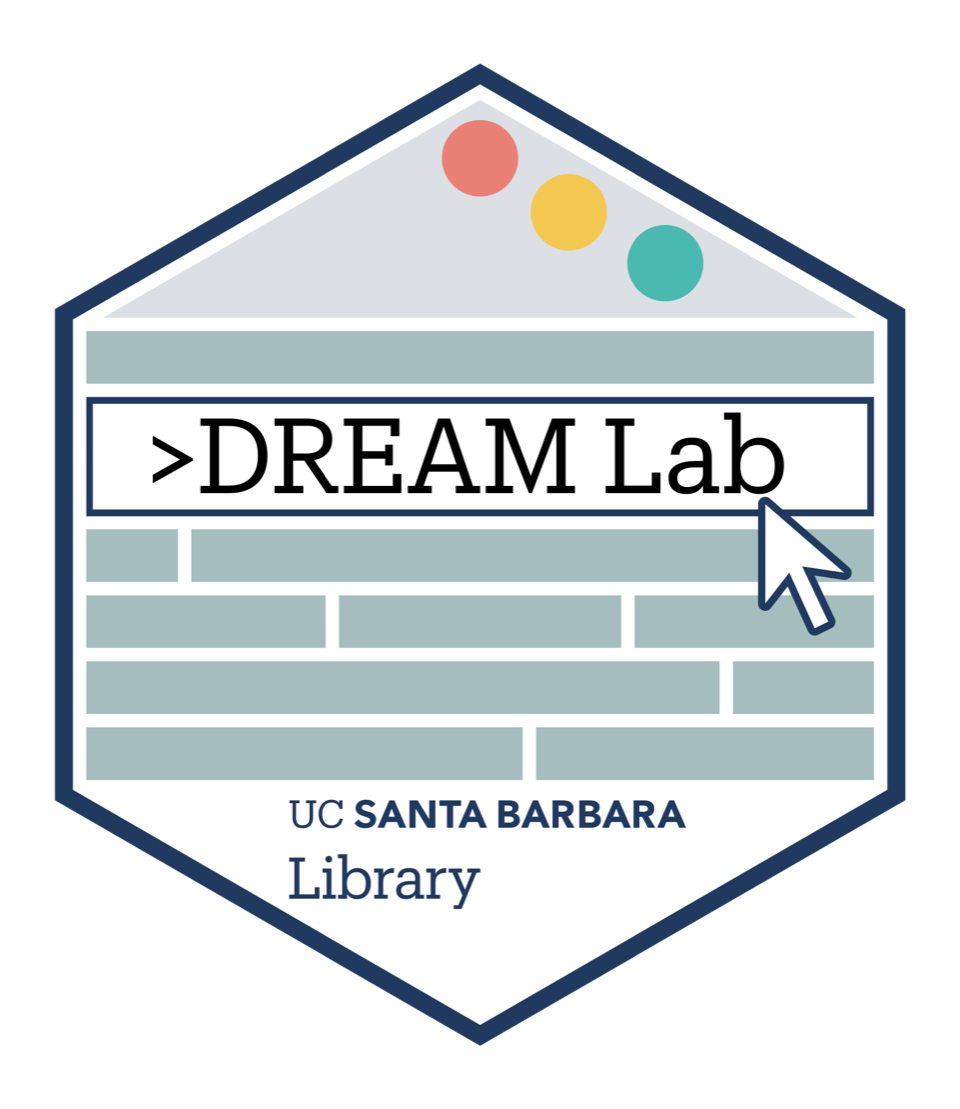Data, Research, Exploration, Access, Methods.
We support data-intensive research, experimentation and learning with new technologies, and access to advanced computational methods for students, faculty, and staff across the campus. Data, research, exploration, accessibility, and methodological rigor are the foundations of everything we do. Learn more about our name and mission.

Spring, 2025
- We are open for drop-in computing and consultations Sunday - Thursday, Noon - 8pm, and Friday, Noon - 5pm.
- VR / AR Studio: New PCs! Coming soon: new headsets!
- We are teaching Carpentry Workshops
Consultations
We can help you find data in the Library's collections, choose an appropriate toolset, or get you started using a wide variety of data analysis tools, including R and Python. You can request a remote or in-person consultation by emailing dreamlab@library.ucsb.edu.
Virtual Machines and Remote Software Access
We offer remote access to specialized software on Azure Labs virtual machines
Analytical Software & Tools
- We have a wide variety of software available in the DREAM Lab and on virtual machines.
- Request specialized tools like Eikon, NVIVO, and BrandWatch using this request form (licenses are limited)
- ALL students, faculty, and staff have access to site-licensed software such as Esri's ArcGIS and SPSS
Workshops
We offer custom-designed workshops for selected courses and tools, as well as a variety of Software and Data Carpentry Workshops. View our public events schedule and Google calendar
The DREAM Lab helps organize the UCSB Carpentry Community.
Data
The DREAM Lab is the Library's main point of access to Datasets, including geospatial data, tabular data, and a slew of other specialized resources. NEW! Planet Labs daily satellite imagery
Check out the Research Computing and Data website for information about campus-wide resources


